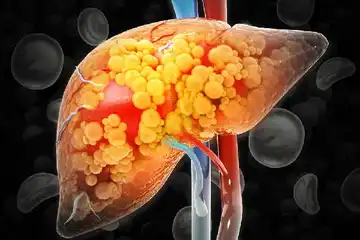What is growth hormone insensitivity?
Growth hormone insensitivity (also known as Laron syndrome) or GHI is a very rare disease, wherein the body is not capable of fully utilizing the available growth hormone which is being produced by the pituitary gland. Growth hormone is responsible for physical growth (including height) of the body. So, insensitivity to growth hormone results in short stature or dwarfism.
What are its main signs and symptoms?
Growth hormone is the hormone responsible for physical growth and height of the body. Insensitivity to this growth hormone results in symptoms like that of growth hormone deficiency and are manifested poor physical growth and dwarfism.
Symptoms of GHI include:
- Dwarfism or short height (Males < 1.35 meters and Females < 1.20 meters)
- Poor muscle strength as well as muscle endurance
- Delayed puberty
- Low sugar levels (hypoglycaemia)
- Small genitals
- Short arms and legs
- Obesity
- Hair become thin and fragile
- Facial features – sunken nasal ridge and protruding forehead
What are its main causes?
GHI usually happens due to modifications (mutation) in the genes that are passed on from parents to children and which affect the growth hormone receptor proteins on the body cells. This mutation in the growth hormone receptors results in poor response to this hormone, which, in turn, causes disruption of normal development and growth of body cells. This is also responsible for poor production of insulin-like growth factor, which helps in the growth of the body.
How is it diagnosed and treated?
A proper medical history with detailed family history and an adequate medical examination usually hints at the diagnosis. Certain blood investigations help in concluding the diagnosis, which includes:
- Growth hormone levels – GH levels are high
- Insulin-like growth factor levels –levels are low
- GHR gene studies – It is a confirmatory test. It helps in checking for gene abnormality for the gene that codes for growth hormone receptor protein.
Treatment options for GHI include:
Currently, there is no curative treatment available for growth hormone insensitivity; however, certain drugs help in managing the signs and symptoms of GHI. These medications include:
- Oral Medications – Mecasermin and Mecasermin rinfabate help in neutralizing the antibodies that are made against growth hormone receptors and reduce the intensity of symptoms
- Injectable medications – Injecting insulin-like growth factor helps in growth and maturation of cells and improves body’s metabolism.

 Doctors for Growth Hormone Insensitivity
Doctors for Growth Hormone Insensitivity  OTC Medicines for Growth Hormone Insensitivity
OTC Medicines for Growth Hormone Insensitivity



















